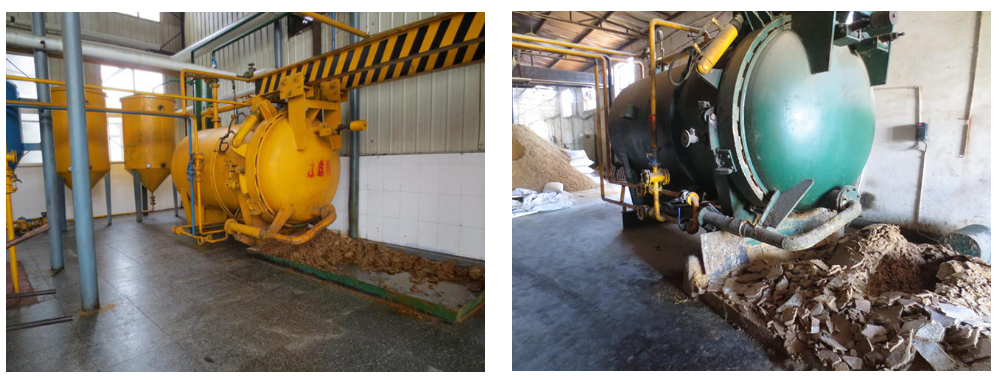Oct . 13, 2024 04:02 Back to list
best vegetable oil processing plant
The Best Vegetable Oil Processing Plant A Comprehensive Overview
In the world of food production, vegetable oils play a crucial role both in nutrition and culinary applications. The demand for high-quality vegetable oil continues to rise globally, making the establishment and operation of vegetable oil processing plants increasingly significant. This article delves into what constitutes the best vegetable oil processing plant, exploring its components, processes, and benefits to the industry and consumers.
Key Components of a Vegetable Oil Processing Plant
A well-designed vegetable oil processing plant comprises several key components, each serving a specific function in the oil extraction and refinement process. These components include
1. Seed Preparation Area The journey of vegetable oil begins with the seeds. A seed preparation area facilitates the cleaning, drying, and de-hulling of seeds to ensure that only the best quality seeds are processed. Proper seed preparation is vital as it impacts the yield and quality of the final oil product.
2. Oil Extraction Unit This unit is where the actual extraction of oil occurs. Two primary methods are employed in oil extraction - mechanical pressing and solvent extraction. Mechanical pressing uses hydraulic or screw presses to extract oil, while solvent extraction uses chemical solvents like hexane to maximize oil yield. The choice of method can significantly influence the quality and quantity of oil produced.
3. Oil Refining Section Once oil is extracted, it often contains impurities, including free fatty acids, phospholipids, and other unwanted substances. The refining section employs processes such as degumming, neutralization, bleaching, and deodorization to ensure the oil is safe for consumption and has an appealing flavor and aroma. This step is crucial for producing high-quality edible oil.
4. Packaging and Storage After refining, the oil must be packaged and stored properly. This section of the plant includes filling machines, labeling equipment, and storage tanks. The right packaging protects the oil from light, oxygen, and temperature fluctuations, prolonging its shelf life and ensuring product quality.
5. Quality Control Laboratory A dedicated quality control lab is essential in a vegetable oil processing plant to monitor the quality of raw materials and final products continually. Rigorous testing ensures compliance with food safety standards and assesses parameters such as acidity, color, and peroxide value.
best vegetable oil processing plant

The Processing Workflow
The operation of a vegetable oil processing plant follows a systematic workflow. It begins with the intake of raw seeds, which are then cleaned and processed in the seed preparation area.
Following preparation, the seeds undergo oil extraction through chosen methods. Mechanical extraction may involve a series of pressing stages to maximize yield, while solvent extraction typically involves soaking the seeds in solvent and subsequently removing the solvent to obtain the oil.
The extracted oil is then subjected to the refining process to remove impurities, ensuring it meets industry standards. After refining, the oil is packaged and stored before distribution.
Benefits to the Industry and Consumers
Investing in the best vegetable oil processing plant offers numerous benefits. From an industry perspective, modern processing facilities improve efficiency, increase production capacity, and reduce operational costs. Moreover, high-quality output enhances brand reputation and can lead to higher market prices.
For consumers, the availability of well-refined vegetable oils ensures access to safe, nutritious food products. High-quality vegetable oils have been linked to various health benefits, including improved heart health and reduced cholesterol levels.
Conclusion
In conclusion, establishing and operating the best vegetable oil processing plant involves a blend of state-of-the-art technology, efficient workflows, and stringent quality control mechanisms. As consumer demand for healthier and higher-quality oils continues to grow, the importance of such processing plants cannot be overstated. Investing in advanced vegetable oil processing technology not only meets market needs but also supports the overall health and well-being of the global population. The future of vegetable oil production looks bright, with ongoing innovations paving the way for even better quality and efficiency in this essential industry.
-
HP 120 Cold Oil Press-Hebei Huipin Machinery|Oil Extraction, Cold Press
NewsAug.07,2025
-
HP 120 Model Cold Oil Press-Hebei Huipin Machinery|Cold Oil Extraction, High Efficiency
NewsAug.07,2025
-
HP 120 Model Cold Oil Press - High-Efficiency Oil Extraction&Automated Processing
NewsAug.07,2025
-
Safflower Oil Press Service | Expert & Efficient Solutions
NewsAug.07,2025
-
HP 120 Model Cold Oil Press - Hebei Huipin Machinery | Advanced Oil Extraction Technology
NewsAug.06,2025
-
HP 120 Cold Oil Press-Hebei Huipin Machinery|Cold Pressing, Oil Extraction
NewsAug.06,2025
